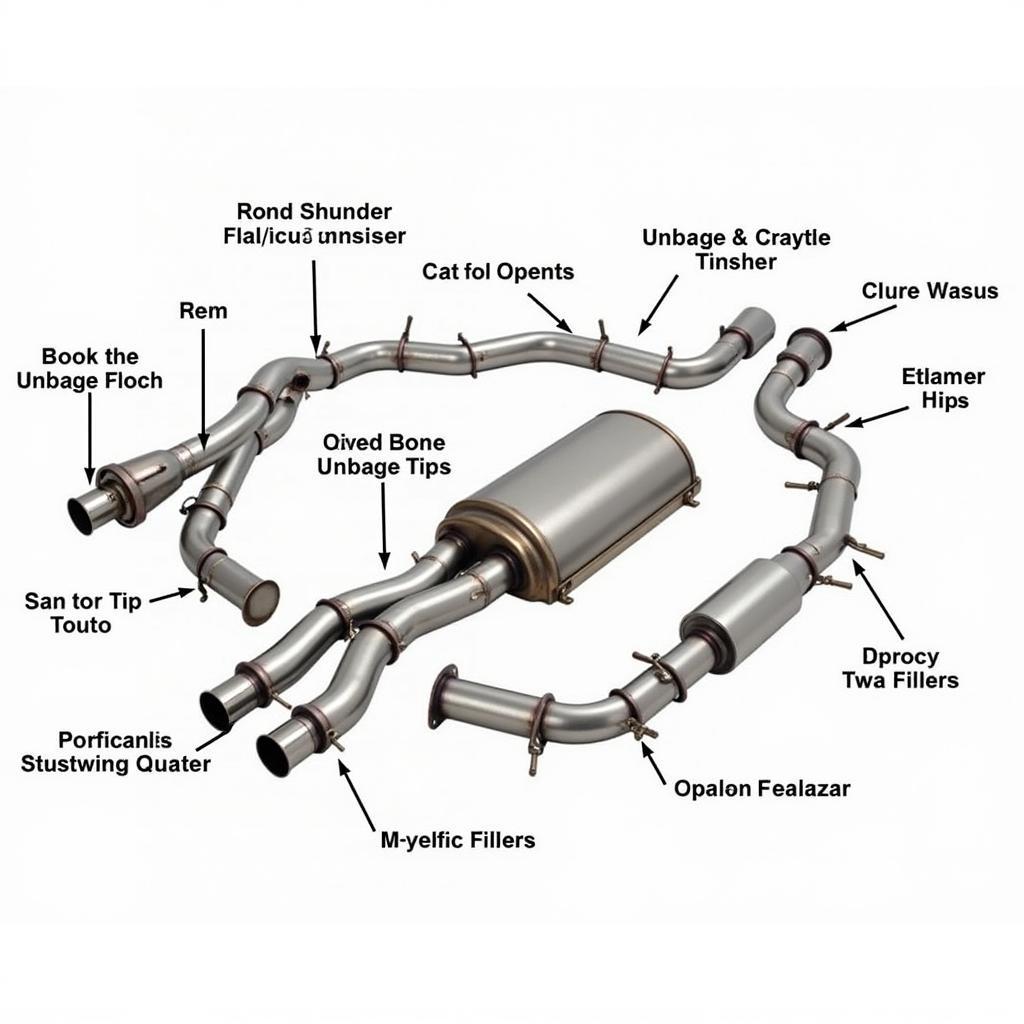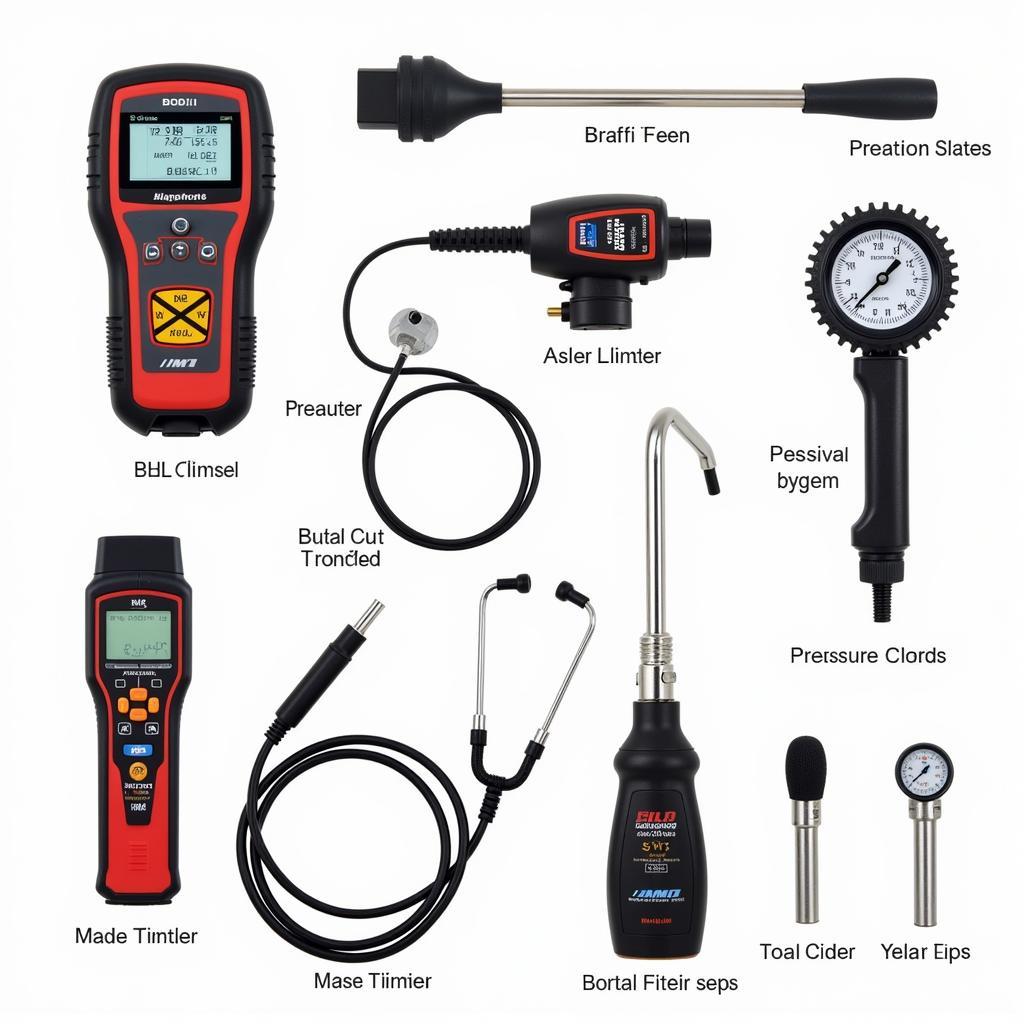The BMW M5 engine sound is more than just noise; it’s a symphony of power, precision, and performance. This article delves into the intricacies of the iconic M5 engine, exploring its unique sonic signature, the technology behind it, and common issues that can affect it. We’ll cover everything from the throaty growl of the early V8s to the sophisticated roar of the modern turbocharged engines. After reading this article, you will have a thorough understanding of what makes the BMW M5 engine sound so distinctive and how to maintain its optimal performance. bmw x3 m sound provides a different perspective on BMW engine sounds for comparison.
The Evolution of the BMW M5 Engine Sound
The M5’s engine sound has evolved significantly over the generations, mirroring the advancements in engine technology. The early models, powered by naturally aspirated inline-6 and V8 engines, produced a raw, visceral sound that is still revered by enthusiasts today. As technology progressed, BMW introduced turbocharging and other performance-enhancing features, which subtly altered the M5’s sonic character. While some purists lament the loss of the naturally aspirated howl, the modern M5 still delivers a powerful and distinctive sound that reflects its high-performance pedigree.
From Naturally Aspirated to Turbocharged: A Sonic Shift
The shift from naturally aspirated to turbocharged engines marked a significant turning point in the M5’s sonic evolution. Turbochargers, while boosting power and efficiency, can sometimes muffle the engine’s natural sound. BMW engineers have worked tirelessly to overcome this challenge, employing innovative exhaust systems and engine tuning to create a sound that is both powerful and refined.
Decoding the BMW M5 Engine Sound: What Makes it Unique?
The distinct BMW M5 engine sound is a result of meticulous engineering and careful tuning. Several factors contribute to its unique character: the engine architecture, exhaust system design, intake tuning, and the use of active sound technologies. These elements work in harmony to create a sound that is both powerful and refined, reflecting the M5’s high-performance capabilities.
The Role of the Exhaust System
The exhaust system plays a crucial role in shaping the M5’s engine sound. From the headers to the mufflers, every component is carefully designed to optimize flow and create the desired acoustic profile. Many M5 models feature active exhaust systems that can be adjusted to produce a more aggressive or subdued sound depending on the driver’s preference. bmw m60 sound offers insights into the characteristics of another iconic BMW engine.
The Impact of Intake Tuning
Intake tuning also contributes to the M5’s distinctive sound. The intake system is designed to optimize airflow into the engine, which not only improves performance but also influences the sound the engine produces. The careful design of the intake manifold and air filter housing ensures a smooth and efficient flow of air, contributing to the engine’s characteristic growl. Have you ever noticed how a slight modification to the intake can drastically change the engine’s note?
 BMW M5 Performance Exhaust System
BMW M5 Performance Exhaust System
“A well-tuned exhaust system is like a musical instrument,” says renowned automotive engineer Dr. Markus Schmidt. “Every component plays a role in creating the perfect symphony of sound.”
Troubleshooting Common BMW M5 Engine Sound Issues
While the BMW M5 engine is known for its robust performance, certain issues can affect its sound. These can range from minor exhaust leaks to more serious problems with the engine’s internal components. Recognizing these issues early on is crucial for preventing further damage and maintaining the M5’s legendary performance. bmw 335i engine sound provides a comparison of engine sounds between different BMW models.
Diagnosing and Addressing Exhaust Leaks
Exhaust leaks are a common cause of unusual engine sounds in the M5. These leaks can create a hissing or popping sound, and can also reduce engine performance. Diagnosing an exhaust leak typically involves a visual inspection of the exhaust system and listening for unusual noises.
Identifying and Resolving Engine Knocking
Engine knocking, often described as a pinging or rattling sound, can indicate a more serious problem with the engine’s internal components. Knocking can be caused by a variety of factors, including low-quality fuel, incorrect ignition timing, or problems with the engine’s pistons or bearings. Addressing engine knocking promptly is crucial to prevent further damage.
“Regular maintenance and timely repairs are essential for preserving the performance and longevity of your M5 engine,” advises master technician Anna Mueller. “Don’t ignore unusual sounds – they could be a sign of a bigger problem.”
 BMW M5 Engine Diagnostic Tools
BMW M5 Engine Diagnostic Tools
Conclusion: The BMW M5 Engine Sound – A Legacy of Performance
The BMW M5 engine sound is a testament to the brand’s commitment to performance and engineering excellence. From the raw power of the early naturally aspirated engines to the refined roar of the modern turbocharged powerplants, the M5’s sonic signature is an integral part of its identity. Understanding the nuances of this iconic sound allows owners and enthusiasts to appreciate the engineering marvel that lies beneath the hood and maintain its optimal performance. bmw m2 sound explores the unique soundscape of other BMW performance vehicles.
Need assistance with your BMW M5? Contact us via Whatsapp: +1 (641) 206-8880, Email: CARDIAGTECH[email protected] or visit our workshop at 276 Reock St, City of Orange, NJ 07050, United States. Our team provides 24/7 support.
